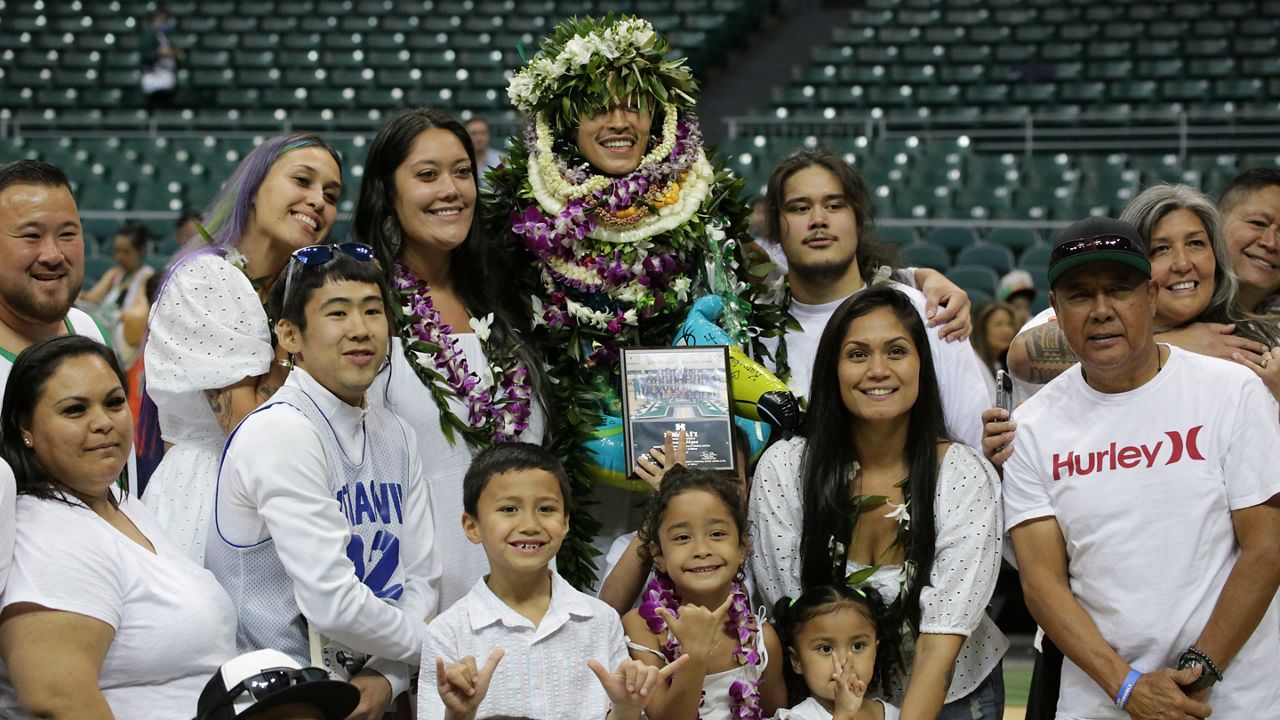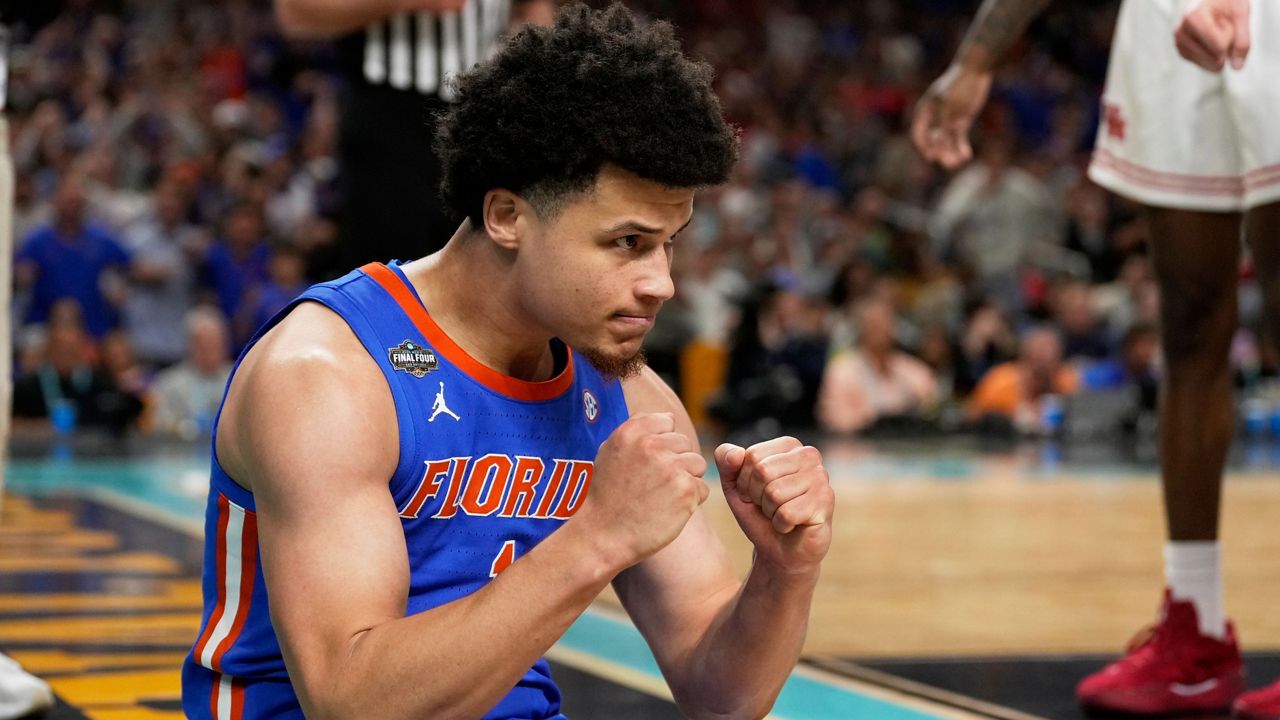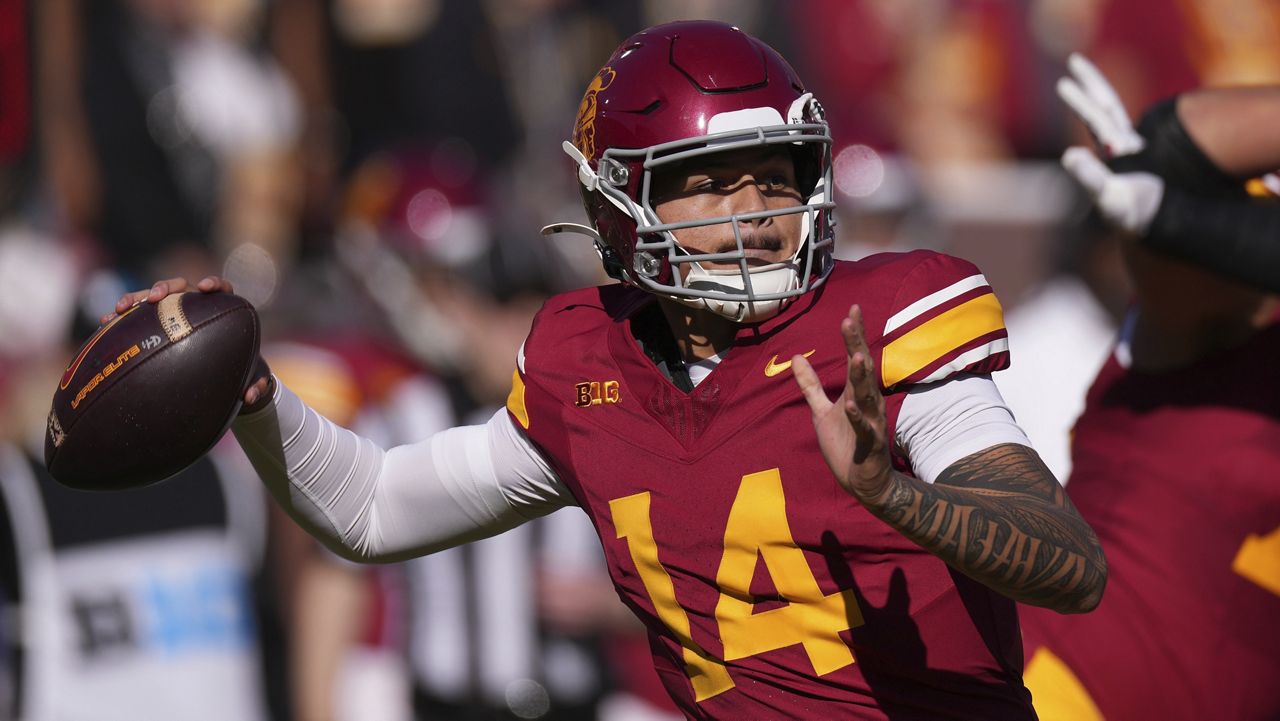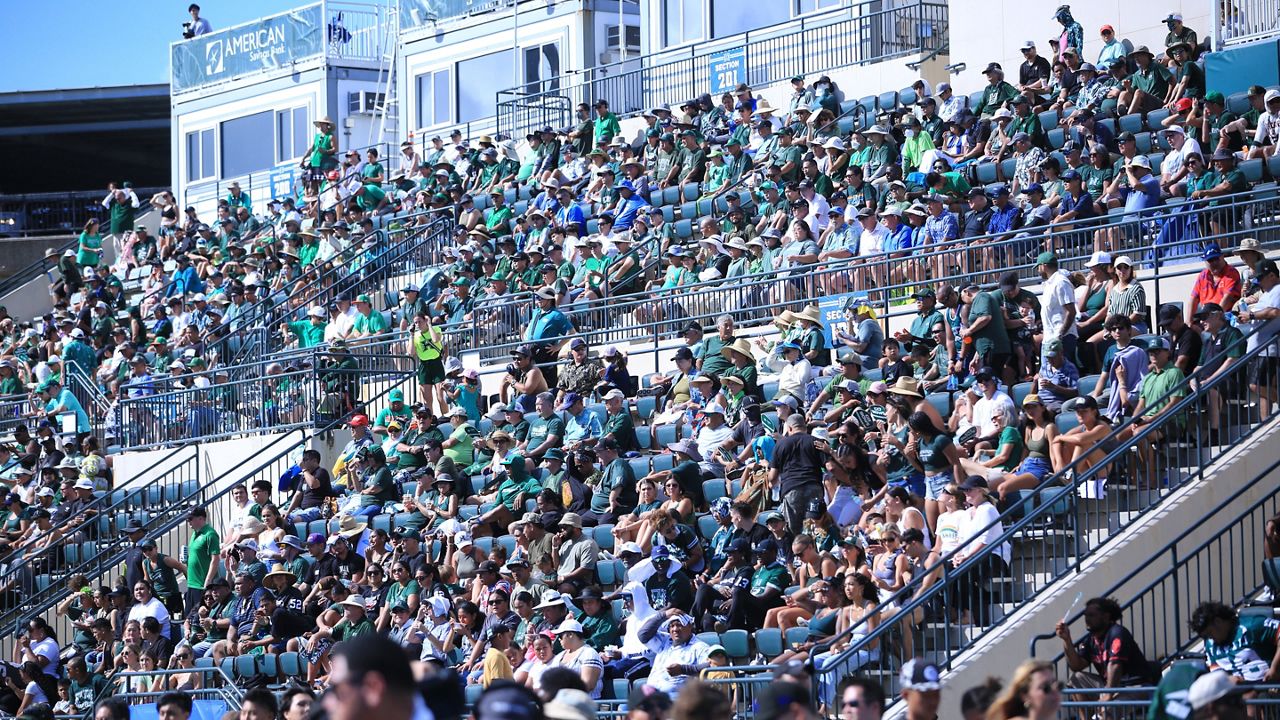HONOLULU — During a weekly media scrum session in February, Kamaka Hepa was asked what he’d learned about his role as an upperclassman with the Hawaii men’s basketball team.
To him, it boiled down to two things that proved elusive over the course of his five-year college career: confidence and consistency.
“Some games I make more shots than others, but I think the level of confidence that I have really has to carry out for the rest of the season knowing that I have to take every game like it’s my last, literally,” Hepa said.
That is now the win-or-go-home reality as the fifth-seeded Rainbow Warriors take on fourth-seeded Cal State Fullerton in the Big West quarterfinals at Dollar Loan Center in Henderson, Nevada.
UH (22-10) has its most overall wins since it claimed the Big West tournament title in 2016 — to date the only time that the ‘Bows won three times in three days and raised the trophy as a BWC member.
For UH to punch its NCAA Tournament ticket, it will have to showcase a level of consistency that wasn’t this team’s calling card during the grind of the 20-game conference season — let alone from one 20-minute half to another within games.
One of the keys in that regard could be the 6-foot-10 Hepa, who has the broadest skill set on the team as a 4 man who can post up while also being the ‘Bows’ most efficient 3-point shooter at nearly 40%.
The former four-star high school recruit has tantalized with performances like his career-high 30 points against Saint Francis in nonconference play and 29 in a road win over Cal Poly on Feb. 4. He followed up the latter with a three-point performance while attempting just three shots in a close home win over UC San Diego five days later, probably the most dramatic example of the variance in his play that can leave onlookers scratching their heads.
Hepa was named a Big West honorable mention on Monday after averaging 11.7 points, 6.4 rebounds and totaling 26 blocked shots, second-best on the team in all three categories. That’s up from 9.4 and 5.0 last season, his first as a go-to collegiate player after three years as a role player at Texas.
Hepa has been more consistent of late, scoring in double figures in five of the last seven games.
“The challenge we’ve asked him is, just continue to find different ways to impact the game,” UH coach Eran Ganot said in February. “He’s been a good leader. He’s been vocal. His length has bothered teams defensively. But maybe there’s different ways to be an offensive power, and that was getting inside, posting up, getting on the offensive boards, getting to the line. Get easy baskets.”
That, again, could be key as UH attempts to launch a Big West tournament run. For starters, Hepa can peer over CSUF’s smallish, four-guard lineup, although a big game is yet to come against the Titans. He had five and 16 points in UH’s two close losses to CSUF during the regular season.
Taking over games on a night-to-night basis wasn’t something Hepa did since his travel ball days with the Utqiagvik Basketball Club, and later as a high schooler in Portland.
Hepa has the laid-back nature of an island boy — just one who was raised in sub-freezing temperatures and happened to grow a head taller than everybody else. Utqiagvik, a remote town of about 5,000, is one of the few U.S. settlements north of the Arctic Circle and is only accessible by plane.
Hepa’s father, Roland, a native of Kauai, moved to Utqiagvik — then known as Barrow — at the invitation of extended family when he was 25 and between construction jobs. After gradually overcoming the first blast of frigid wind upon stepping off the plane, he found a place he could call home. He met his future wife Raynita and was taken in by her family.
“It’s no different than anywhere else to me,” Roland Hepa told Spectrum News. “You got a family. You do the exact same things, it’s just in a different climate. Obviously, you gotta stay warm. If you keep busy, you’ll be fine. … It’s been great raising a family here.”
Kamaka Hepa was brought up with the family-first values of both his Hawaiian and Native Alaskan sides of the family. That cluster of relatives was his hoops origin story.
As a youth, he and his cousins would shoot on an adjustable basket over a dirt road for hours into the summer nights when the sun doesn’t set, then light a bonfire or ride their bicycles around town. That helped make up for the bone-chillingly frigid winters, when the sun doesn’t rise from late November to early January.
“Playing basketball was just that; there wasn’t like a specific position, all we did was watch NBA games and high school games and local rec league games and we’d try to imitate whatever they were doing,” Kamaka Hepa said.
His idol? A young Kevin Durant, when the future NBA superstar was still a lanky up-and-comer.
Roland Hepa and his cousin gathered up Kamaka, his kin and close friends into a team — being Utqiagvik, it was a travel team by necessity — around the second grade. Utqiagvik supported them with gym availability whenever it was needed. There was a trip to Anchorage for a tournament, and a trophy. More trips followed.
“We started winning almost everything in Alaska. We said, ‘hey, let’s go try Seattle.’ … We even won out in Seattle too,” Roland Hepa said.
Eventually, it was time to relocate to expand Hepa’s horizons. In Portland, he got to take part in the Nike travel basketball tour. That’s when his recruitment exploded and people like then-Texas coach Shaka Smart came calling.
Hepa would win four high school state championships — two at Barrow High, two at Jefferson High in Portland — and was a three-time Gatorade Player of the Year.
Texas was a good experience for his son, Roland Hepa said, especially academically. It just wasn’t somewhere he could blossom on the court.
When he entered the transfer portal, UH, which had followed Hepa from afar, was aggressive in its recruitment, Ganot said, turning to wing Samuta Avea to help seal the deal.
Hawaii was a place Hepa had visited frequently over the years, usually to Kauai every summer to see his aunts, uncles and cousins.
Co-captaincy became part of the job once he got settled in Manoa. That, too, took some adjustment, but Hepa grew into the role.
“We have other team leaders that take away the stress that is involved with that position,” he said in February. “I feel like I can talk to our guys about anything: basketball and non-basketball related.”
Close to 30 members of Hepa’s family turned out on senior night on Feb. 25, from Alaska and the Neighbor Islands both.
Ganot recently lamented that Hepa’s two years in the program came and went in a flash.
However, with a strong showing this week, UH can extend it a bit further.
“He’s been a pleasure in every area … and his impact will be felt here for a long time,” Ganot said.
Brian McInnis covers the state's sports scene for Spectrum News Hawaii. He can be reached at brian.mcinnis@charter.com.








